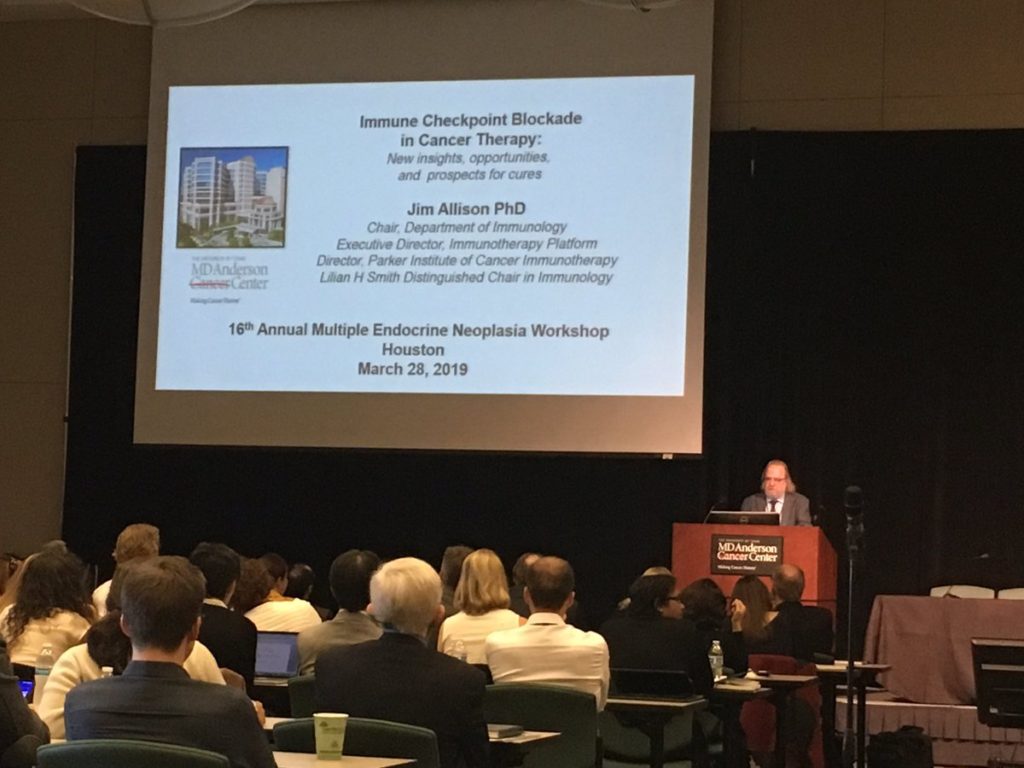
A few weeks ago, I heard Dr. James Allison, a scientist at MD Anderson Cancer Center and winner of the 2018 Nobel Prize for Physiology or Medicine, tell the story of his work on the biology of immune T-cells. Dr. Allison discovered an immune checkpoint blocker, ipilimumab, in groundbreaking research that has dramatically changed cancer treatment.
His work began decades ago and along the way to the Nobel Prize, he encountered skeptics who didn’t agree with his thesis that the immune system could be turned on to attack tumors. He was snubbed by multiple drug companies and worked with many collaborators.
As I listened to Dr. Allison speak to the attendees at the 2019 International MEN conference, I looked around the room at the researchers who had come together to better understand and treat tumors caused by MEN genetic mutations, including pancreatic neuroendocrine tumors. All of them are pursuing their paths to scientific discovery with the hope of learning something that will ultimately benefit patients.
Several days later, at the American Association of Cancer Research Conference, I heard international researchers talk about areas where we are funding research: CAR T-cell therapy, oncolytic virus treatments, organoids, biomarkers, and genomics. Early-career researchers networked with the well-established and well-known cancer scientists—thousands of them focused on outsmarting cancer.
Spending these days in the company of these scientists and clinicians is a reminder of the importance of basic science, the foundation of major advances in treatment. The Neuroendocrine Tumor Research Foundation (NETRF) has always funded basic science in NETs, a key segment of our research portfolio. We’ll continue to support this work to discover why NETs develop and spread. Our portfolio also contains a good balance of translational and clinical projects. It’s reassuring to know NETRF is funding scientists studying NETs on the cutting edges of science.
I bet Dr. Allison didn’t think he would be a Nobel Prize winner in the very early days of his research. Science can seem to move slowly and advancements can appear to be small. I’m thankful for all the researchers in those conference rooms with their determination and passion. That’s why NETRF supports scientists at all career levels to apply their talent to NETs. Who knows? Maybe someday one of our grantees will get an early morning call from the Nobel committee.
Thank you for your support of NETRF’s mission.
Elyse Gellerman
NETRF Chief Executive Officer


